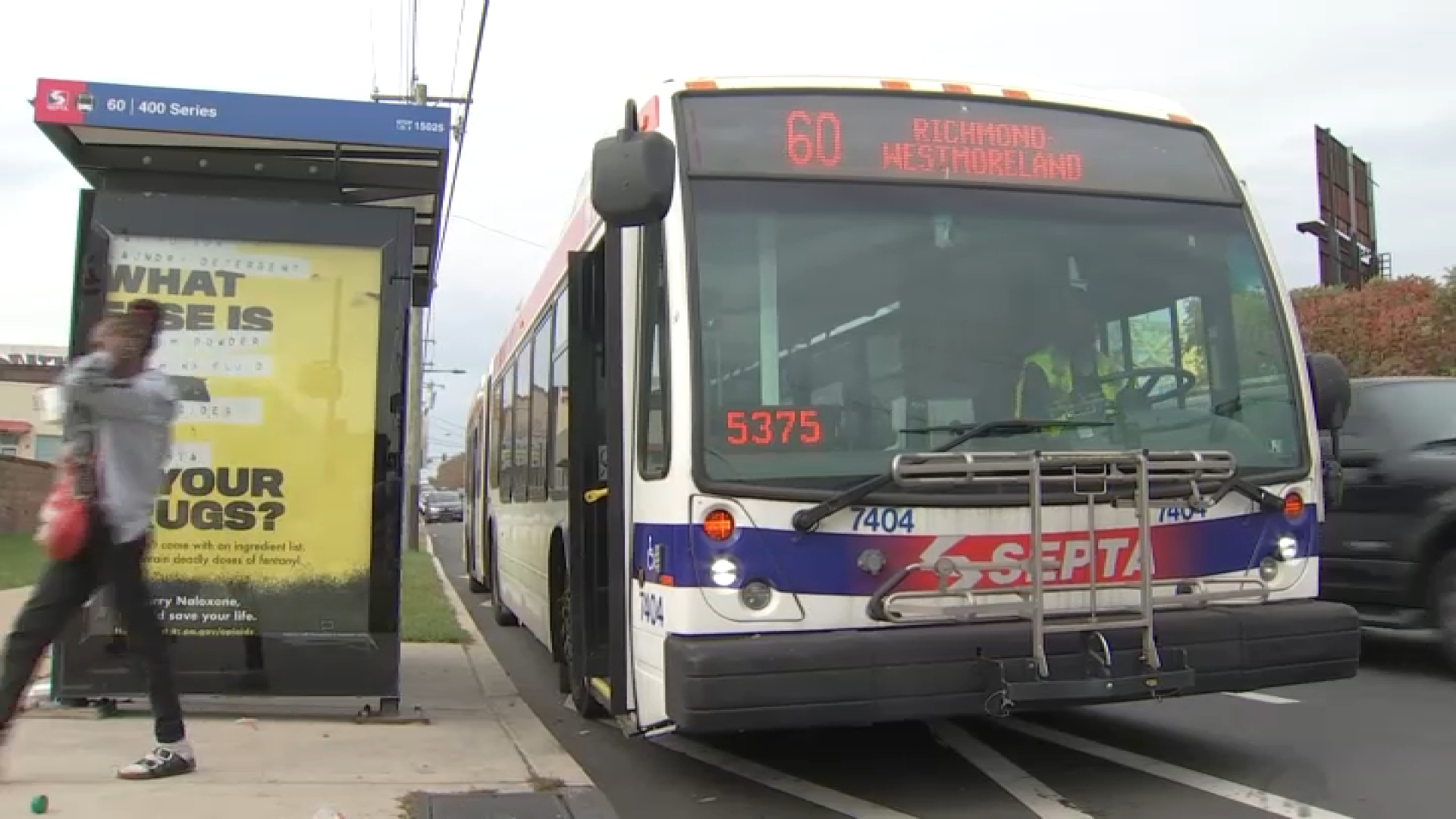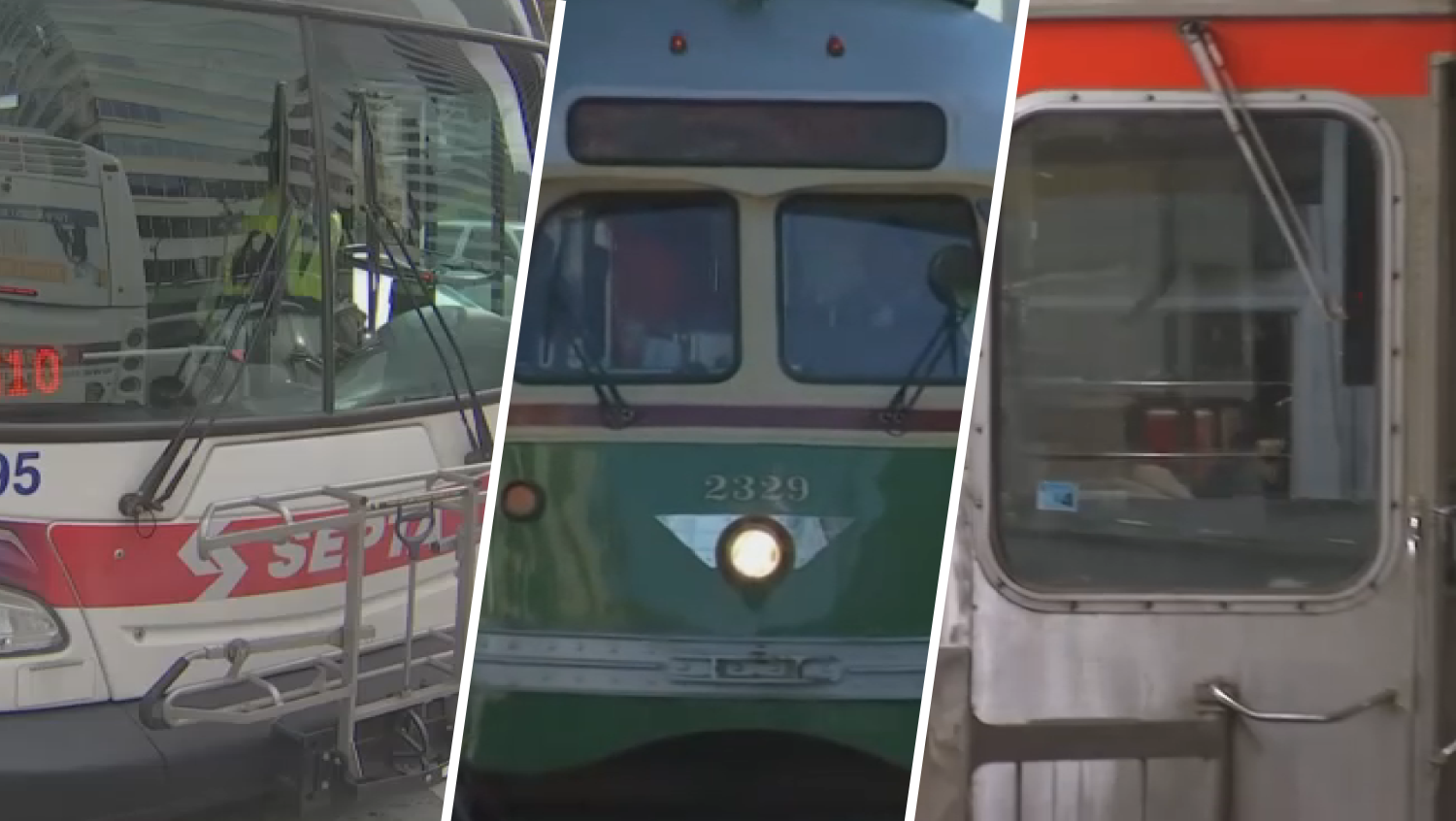What to Know
- Gov. Josh Shapiro says he'll divert more than $150 million in federal highway funding to help Philadelphia’s mass transit system avoid near-term service cutbacks and delay fare increases.
- Shapiro’s announcement Friday comes as many transit agencies are in a financial crunch. The nation’s sixth-largest mass transit system, SEPTA says it's facing an annual structural budget deficit of $240 million. Shapiro says shifting federal highway funding won’t jeopardize any ongoing highway projects.
- Shapiro acknowledges that the funding is a one-stop stopgap until he can come to an agreement on a wider transportation funding deal with state lawmakers.
- SEPTA announced that the funding means the transit agency is cancelling the public hearings on the fare hikes that was scheduled for Dec. 13.
Pennsylvania Governor Josh Shapiro is taking action to put a temporary pause on SEPTA's looming "transit death spiral."
On Friday, Nov. 22, Shapiro announced he directed PennDOT Secretary Mike Carroll to flex $153 million of federal highway capital funds to SEPTA immediately.
Get top local stories in Philly delivered to you every morning. Sign up for NBC Philadelphia's News Headlines newsletter.
"This action allows for continued service and for SEPTA to avoid immediate service cuts and delay more significant fare increases until July 1, 2025," Shapiro wrote in a letter obtained by NBC10.
The transit agency said in a statement that the public hearings on the fare hikes scheduled for Dec. 13 have been cancelled in light of the news.
Money for SEPTA comes from seven Pennsylvania highway projects
During a press conference at the Frankford Transportation Center late Friday morning, Shapiro said the money will be flexed from seven highway projects across Pennsylvania.
“While these funds will come from seven different highway projects across the state, none of those highway projects are under construction yet,” Shapiro said. “In fact, none of them have even been put out to bid. They’re a long way off. There is no reason to keep that money on our balance sheet in the state when we can invest it in SEPTA right now and help this community.”
Those seven projects are for the following highways in the following Pennsylvania counties:
- I-79 in Mercer County
- I-80 in Columbia County
- I-95 in Philadelphia (Near Castor and Allegheny)
- I-83 in York County
- Two projects on I-80 in Jefferson County
- I-70 in Washington County
Shapiro also insisted those seven projects will still be completed on time.
SEPTA
Pausing the transit death spiral
Shapiro's announcement comes after SEPTA warned of a possible “transit death spiral” in which the transit agency would increase fares 29% and reduce services by 20% in January 2025.
The nation’s sixth-largest mass transit system, SEPTA says it's facing an annual structural budget deficit of $240 million. The transit agency said they were forced to implement the new plan after a state budget that would have given them an influx of $161 million was shot down by legislators in Harrisburg.
"SEPTA has been in the water for two years now and we were going under. And today, Governor Shapiro has thrown us a lifeline," SEPTA Board Chair Ken Lawrence said. "This announcement today pauses the death spiral and allows us to tread water."
Shapiro's announcement also comes a day after SEPTA's Board approved an initial 7.5% fare hike that will take effect at the start of December.
SEPTA Chief Operating Officer Scott Sauer told NBC10 while the funding from PennDOT will stop the fare hike and service cuts in January, it wouldn't prevent the December fare hike. There will be no service cuts until at least the summer, however.
"This was the solution that we needed to plug the hole in the boat this year. But it comes back July 1," Sauer said. "The service levels that we're running today will remain in effect at least through June 30 of 2025 and then we'll see what happens beyond that point."
Shapiro's announcement also comes after SEPTA reached tentative deals to avoid strikes from workers in both Philadelphia and the Pennsylvania suburbs.
During Friday's announcement, Shapiro said the funding helped SEPTA avoid the strike from Transport Workers Union Local 234 members.
"It also allowed SEPTA to give more money to their workers in their recent contract negotiations with TWU," Shapiro said. "So they could reach this tentative one year agreement on a fair contract and avoid a strike that would have been disastrous for our region."
Finding a permanent solution to SEPTA's financial woes
In Friday's letter, Shapiro wrote about his 2024-25 budget proposal that would have utilized 1.75% of sales tax revenue to provide an additional $282.8 million in recurring funding per year for mass transit in the state.
"My proposal would not have cost the citizens of the Commonwealth an additional penny and would have benefitted millions of Pennsylvanians in rural, urban, and suburban communities who rely on mass transit every single day to get them where they need to go and power our economy," Shapiro wrote. "As such, when I signed the FY 2024-25 budget, I made clear that the issue of mass transit funding was unresolved and I expected the Legislature to come together to find a permanent solution."
While Shapiro said the funding from PennDOT will delay major service cuts and fare increases until the summer, he warned that it was only a short-term solution and work still had to be done to reach a comprehensive deal.
"The State Senate has publicly stated they require two things as part of a deal on mass transit -- funding for roads and bridges and a new revenue stream," Shapiro wrote. "I agreed to add funding for roads bridges, and I have proposed several new revenue streams in both of my first two budget proposals, and remain ready to sign them into law. In the next legislative session, I look forward to revisiting these issues, finding common ground, and working together to solve these challenges."
Shapiro and other Democrats -- including Philadelphia Mayor Cherelle Parker -- have pointed to the Republican-controlled Pennsylvania Senate to pass transit funding that was approved by the Democratic-controlled House.
"If you claim to be pro-business and if you claim to be pro-growth, I don't care what your party is, you will find a way to partner with our government and our legislative leaders," Parker said during Friday's announcement.
Kim Ward -- the Senate President Pro tempore and Pennsylvania's top Republican Senator -- reacted to Shapiro's announcement in a statement.
“Today’s announcement by Gov. Josh Shapiro to address the mass transit crisis facing SEPTA is a crisis of his own making. It’s yet another example of how simply ‘showing up’ falls short in addressing complex issues,” she wrote. “Gov. Shapiro and House Democrats prioritized education over mass transit by approving the largest budget increase ever for a traditional education system that continues to trap Philadelphia’s kids in failing schools.”
The importance of SEPTA for 2026 in Philadelphia
Shapiro also emphasized the importance of finding a permanent solution to SEPTA's financial crisis as the Philadelphia region prepares for 2026, a year that will feature several major events in the city, including America's 250th anniversary celebration, the FIFA World Cup and the MLB All Star Game.
“We’ve got to make sure that SEPTA is there for all those folks who come to visit. We’ve got to make sure that SEPTA can serve our neighbors who rely on it every day as well as the millions of visitors who come to Pennsylvania for their great American getaway over the course of the next several years," Shapiro said. "I think we have a huge opportunity in front of us with USA 250 coming to Pennsylvania and we need SEPTA to be able to help support that and I’ve made clear I will not let SEPTA fail.”
Before Shapiro's order is official, it needs to be approved by the federal government since it involves federal money.




